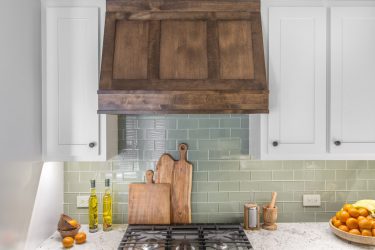This past week I was asked for my opinion about reusing a garbage disposal in a kitchen remodel, and I also picked up the first load of leaves that were raked and bagged from a client’s yard to use in my compost pile. This got me to thinking that garbage disposals and compost piles have a bit in common, as both break down biodegradable matter.
Being an avid composter, I’m always suggesting to anyone who will listen that they should start a compost pile and enjoy all the benefits, one of which is that less food and water will be sent down the waste water sewer system to be treated and dumped into the Trinity River.
Garbage disposals are a wonderful tool in the kitchen. They chop food waste into small particles so they can be carried down the waste water sewer system without causing clogs. A garbage disposal’s expected life span is 10 – 12 years. Many give out much earlier than that and many last a lot longer, and it all depends on how it is or isn’t used. Here are eight things you should know to make your garbage disposal last as long as it can:
1. Keep it clean. After you finish using the disposal, run some hot soapy water through the disposal to clean it. There is a debate as to whether hot or cold water should be used. I’m on the hot water side of the debate. Keeping it clean will keep smells away. Running citrus fruit peelings through it, such as oranges, lemons and grapefruit, will freshen up any smells as well.
2. Use it or Lose it. If you don’t use your disposal on a regular basis, the operating parts will start to corrode and rust. Using it on a regular basis will keep the parts moving and working well, and keep smells away.
3. Don’t Stuff Large Pieces in it. Cut up anything big into smaller pieces and put them in the disposal a little at a time rather than overworking it. Forcing food through the disposal can cause the electric motor to overheat, which will shorten the life of the disposal.
4. Only Put Biodegradable Food in the Disposal. No cigarette butts, plastic, metal, glass or even paper. These items will gum up the blades and cause clogs.
5. Don’t Pour Grease Down the Disposal, Ever! I know it’s tempting to pour a little grease down the drain once in a while, but after so many “once in a whiles,” you will have a clog. These types of clogs can become expensive to fix.
6. Grind Some Ice Occasionally. The ground ice chips will scour the inside of the disposal. This is a good once-a-month practice.
7. Don’t Grind These Foods: Corn husks— the fibers can tangle and jam the blades. Rice or pasta—they can expand and cause a clog. Animal bones—the disposal is just not made for this type of chopping.
8. Don’t Use Bleach or Drain Cleaners. Harsh chemicals will damage the blades and metal pipes. Use only biodegradable soaps and cleaners made for kitchen cleaning.
Composting
In the lead picture, that’s Puppy on the left, and Buddy on the right, and our compost pile behind them. They are the keepers of the back yard, ensuring the squirrels and birds don’t mess with the garden and doing whatever else it is that dogs do in a back yard. I could blather on for pages about the benefits of having a compost pile; spending more time with nature, the science of the decomposition, the exercise you can get, having a place to put non–protein based food waste so it doesn’t have to be washed down our sewer system, and great homemade potting soil, to name a few.
There are as many ways to compost as there are composters. The fact is the decomposition is going to happen regardless of what we do; we just make it go a little faster with our piles. A compost pile doesn’t have to be big or complicated, it can be as simple as a small pile on the ground, behind a bush in your yard, where you add yard clippings, leaves and non-protein based food waste. Then, once a month or so, add some water and mix the pile up. This adds oxygen and maintains efficient decomposition.
If you are interested in learning more about composting check out the City of Arlington’s online information and weekly composting class: http://www.arlingtontx.gov/environment/composting.html
My answer to reusing a garbage disposal—even one that is just a few years old—in a kitchen remodel: Put a new one in, it will save you money in the long run. A new garbage disposal costs less than $150.00 and will help save a plumber’s service call for those few extra years.
Thanks for reading,
Mike








